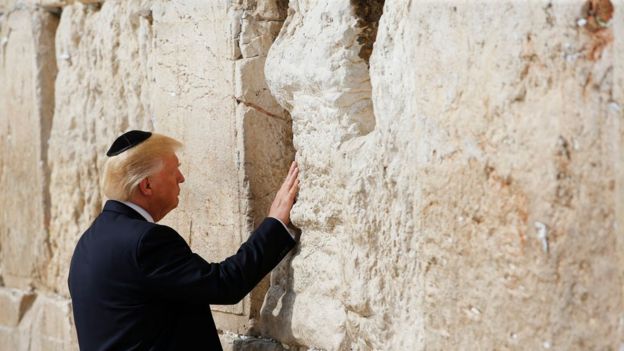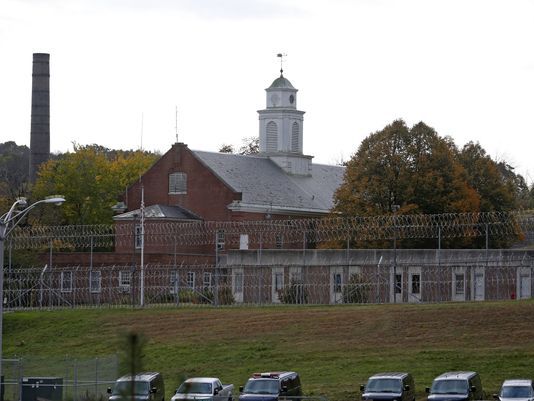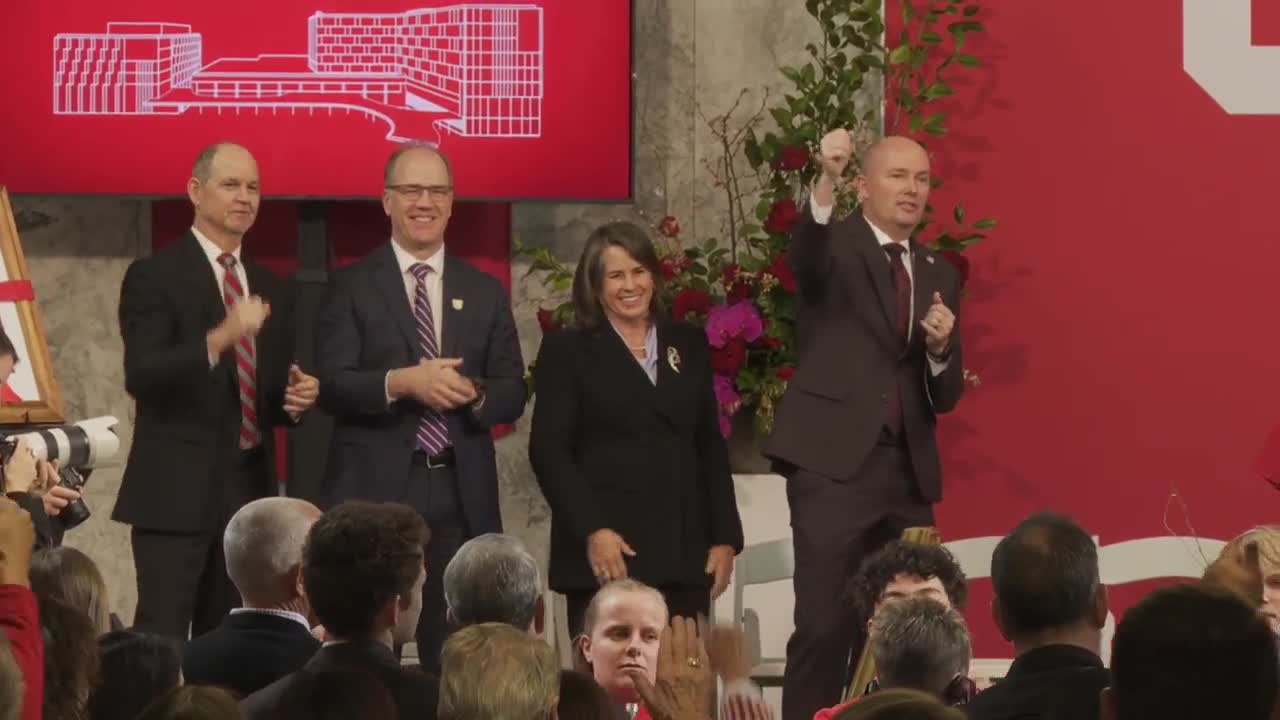The Nature Of Trump's Relationships With Middle Eastern Leaders

Table of Contents
H2: The Saudi Arabia Connection: A Strategic Partnership?
Trump's relationship with Saudi Arabia, particularly with Crown Prince Mohammed bin Salman (MBS), was arguably one of the most significant and controversial of his presidency. This relationship was characterized by a strong emphasis on economic ties and military cooperation, but also shadowed by serious human rights concerns.
- Massive Arms Sales and Their Implications: The Trump administration approved massive arms sales to Saudi Arabia, bolstering the kingdom's military capabilities but raising ethical questions about fueling conflicts and human rights abuses. These deals generated billions in revenue for US defense contractors, solidifying the strategic economic partnership.
- Economic Cooperation and Energy Dependence: The US and Saudi Arabia share significant economic interests, particularly in the energy sector. Trump's emphasis on energy independence for the US did not diminish the importance of the relationship with Saudi Arabia, a major oil producer. This interdependence shaped many aspects of their cooperation.
- Concerns Regarding Human Rights and the Khashoggi Assassination: The murder of Jamal Khashoggi, a Saudi journalist, in the Saudi consulate in Istanbul cast a long shadow over the relationship. While Trump acknowledged the severity of the incident, his administration's response was criticized by many as insufficient, highlighting the complex balancing act between strategic interests and human rights concerns.
- The Role of Crown Prince Mohammed bin Salman (MBS): MBS played a central role in shaping the relationship with the Trump administration. His ambitious Vision 2030 plan and his efforts to modernize Saudi Arabia were met with mixed reactions, and his influence on the relationship was undeniable.
H2: Israel and the Abraham Accords: A Legacy of Peacemaking?
One of the most significant achievements of the Trump administration's Middle East policy was the brokering of the Abraham Accords. These normalization agreements between Israel and several Arab nations—including the UAE, Bahrain, and Sudan—represented a significant shift in regional dynamics.
- Normalization of Relations Between Israel and Several Arab Nations: The Abraham Accords led to the establishment of diplomatic relations and the signing of various cooperation agreements between Israel and several Arab nations, marking a historic shift away from decades of conflict and hostility.
- The Impact on Regional Dynamics and the Israeli-Palestinian Conflict: The impact of the Abraham Accords on the Israeli-Palestinian conflict remains a subject of debate. While some hailed it as a step towards a broader peace process, others criticized it for sidelining the Palestinian issue.
- Criticisms and Concerns Regarding the Agreements' Long-Term Effects: Critics argued that the accords prioritized Israeli interests and did not adequately address the underlying issues of the Palestinian-Israeli conflict. The long-term effectiveness of the accords in achieving lasting peace in the region remains to be seen.
- The Role of Jared Kushner: Jared Kushner, Trump's son-in-law and senior advisor, played a pivotal role in the negotiations leading up to the Abraham Accords, emphasizing his significant contribution to the diplomatic process.
H2: Confronting Iran: Maximum Pressure and Beyond
Trump adopted an aggressive stance towards Iran, marked by a withdrawal from the Iran nuclear deal (JCPOA) and the implementation of a "maximum pressure" sanctions campaign.
- Withdrawal from the Iran Nuclear Deal (JCPOA): Trump's decision to withdraw from the JCPOA in 2018 was a major shift in US policy toward Iran, raising concerns about the deal's future and the implications for regional stability.
- Implementation of "Maximum Pressure" Sanctions: The Trump administration imposed sweeping sanctions on Iran, aiming to cripple its economy and force it to negotiate a new nuclear deal. The effectiveness and impact of this policy remain subjects of ongoing debate.
- The Heightened Tensions and Military Threats: Trump's policies significantly increased tensions with Iran, leading to several military incidents and escalating the risk of conflict in the region.
- The Impact on Regional Stability and International Relations: Trump's approach to Iran strained relations with several European allies and complicated efforts to address other regional conflicts.
H2: Beyond the Big Three: Relationships with Other Middle Eastern Leaders
Trump's interactions extended beyond Saudi Arabia, Israel, and Iran, encompassing a range of relationships with other key Middle Eastern leaders.
- Varying Levels of Engagement and Cooperation: Trump's engagement with leaders in Egypt, Jordan, Turkey, Iraq, and Qatar varied significantly depending on US strategic interests and the specific circumstances.
- Specific Policy Issues and Areas of Collaboration or Conflict: His interactions involved a spectrum of issues from counterterrorism cooperation to disagreements over regional policies.
- The Overall Impact on US Influence in the Region: The unpredictable nature of Trump's diplomacy and his frequent shifts in policy have created both opportunities and challenges for US influence in the Middle East.
Conclusion:
Trump's relationships with Middle Eastern leaders were characterized by a complex interplay of strategic interests, personal relationships, and ideological considerations. His decisions, from brokering the Abraham Accords to withdrawing from the JCPOA, significantly reshaped the geopolitical landscape of the Middle East. The lasting impact of his policies continues to unfold, underscoring the need for careful analysis and ongoing engagement with this critical region. Continue exploring the intricacies of Trump's Middle East policies by visiting [link to relevant resource, e.g., a reputable think tank or academic journal].

Featured Posts
-
 How Missed Student Loan Payments Affect Your Credit Score
May 17, 2025
How Missed Student Loan Payments Affect Your Credit Score
May 17, 2025 -
 Josh Hart Shatters Knicks Single Season Triple Double Record
May 17, 2025
Josh Hart Shatters Knicks Single Season Triple Double Record
May 17, 2025 -
 Federal Charges Filed Individual Accused Of Millions In Office365 Executive Account Hacks
May 17, 2025
Federal Charges Filed Individual Accused Of Millions In Office365 Executive Account Hacks
May 17, 2025 -
 15 Day Il For Mariners Bryce Miller Elbow Injury Sidelines Pitcher
May 17, 2025
15 Day Il For Mariners Bryce Miller Elbow Injury Sidelines Pitcher
May 17, 2025 -
 Double Trouble In Hollywood Writers And Actors Strike Brings Industry To Halt
May 17, 2025
Double Trouble In Hollywood Writers And Actors Strike Brings Industry To Halt
May 17, 2025
Latest Posts
-
 U Of U Announces New West Valley Hospital And Health Campus Thanks To Eccles Foundation
May 17, 2025
U Of U Announces New West Valley Hospital And Health Campus Thanks To Eccles Foundation
May 17, 2025 -
 Iowa Basketball Adds Former Drake Coach Ben Mc Collum
May 17, 2025
Iowa Basketball Adds Former Drake Coach Ben Mc Collum
May 17, 2025 -
 75 Million Gift To Build New U Of U Hospital In West Valley
May 17, 2025
75 Million Gift To Build New U Of U Hospital In West Valley
May 17, 2025 -
 Eccles Foundation Funds Transformative U Of U Health Campus
May 17, 2025
Eccles Foundation Funds Transformative U Of U Health Campus
May 17, 2025 -
 Ensino Superior No Vale Apenas 4 Cursos Alcancam Nota Maxima Do Mec
May 17, 2025
Ensino Superior No Vale Apenas 4 Cursos Alcancam Nota Maxima Do Mec
May 17, 2025
